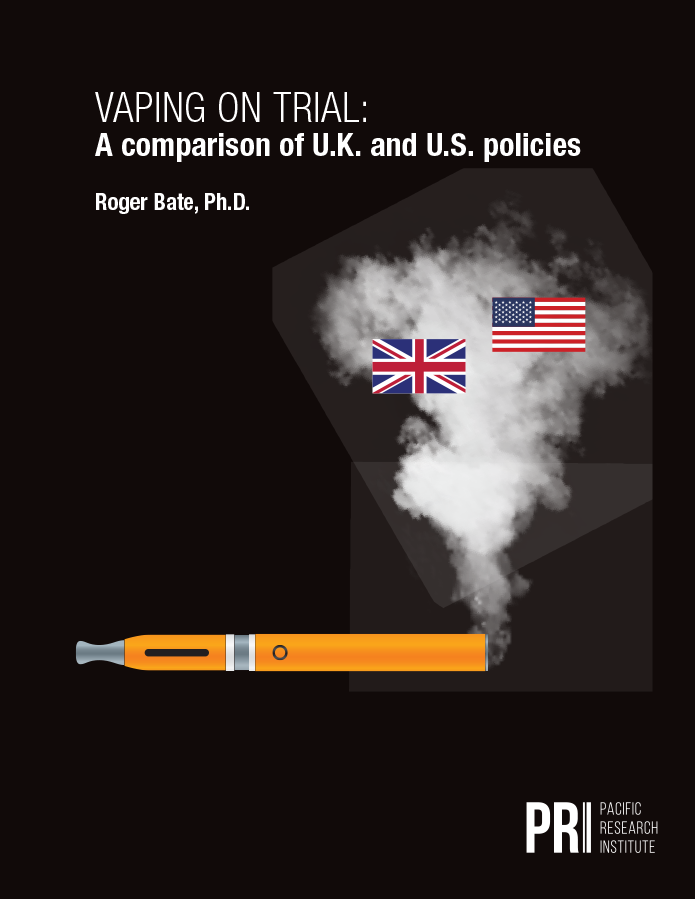As the federal government and states such as California consider taxing and imposing new or stricter regulations on vaping products, particularly flavored products, Roger Bate, Ph.D. finds that there are important lessons U.S. policymakers can learn from the tax and regulatory environment in the U.K. in a new study released today by the nonpartisan Pacific Research Institute.
“While the U.K. imposes taxes and regulations based on the relative risk of vaping versus smoking, the U.S. approach focuses on the absolute risks of vaping products alone,” said Bate. “Preventing new products denies the ability of people to try new products that could improve their lives or reduce their relative risks. There are risks from vaping, but they are significantly lower compared with smoking.”
In VAPING ON TRIAL: A comparison of U.K. and U.S. policies, Bate exposes the tendency of U.S. health organizations and advocacy groups to criticize vaping without acknowledging the benefits vaping provides for smokers looking for a less risky alternative.
He also points to clinical trials using nicotine replacement to stop smoking that found vaping is more successful at driving smoking cessation than other methods. Further, there is scant evidence to support the commonly-held view that vaping is a gateway to smoking.
He cites a JAMA network study that shows the impact United States health organizations’ direction on vaping has had on the physicians who work closely with patients looking to quit smoking. The study found that more than 60 percent of U.S.-based physicians believed all tobacco products – from traditional cigarettes to vaping pens – to be equally harmful. A large majority of United States physicians will not recommend vaping as a harm-reduction strategy to smoking, which is vastly different than the 44% of physicians in the U.K. who recommend it.
Regarding what seems to be the largest concern regarding vaping, the youth uptick of vape users, physicians in the U.K. were more concerned about likely smoking behavior if vaping were banned. Dr. Bate argues that youth take-up is below ten percent and, crucially, offset by a fall in youth smoking. Vaping can disrupt pathways that lead to smoking, a much more damaging youth risk behavior.
Rather than banning or discouraging the use of vaping, Dr. Bate recommends the United States should:
• Discuss the benefits of vaping relative to the dangers of smoking cigarettes and not as a standalone issue and provide clear, evidence-based information to the public
• Impose decreased taxes on vaping products to encourage cigarette smokers to make the switch to the less risky alternative
• Encourage the FDA to approve vaping products as new harm reduction products
• Eliminate any vaping bans and restrictions that push smokers back to cigarettes

